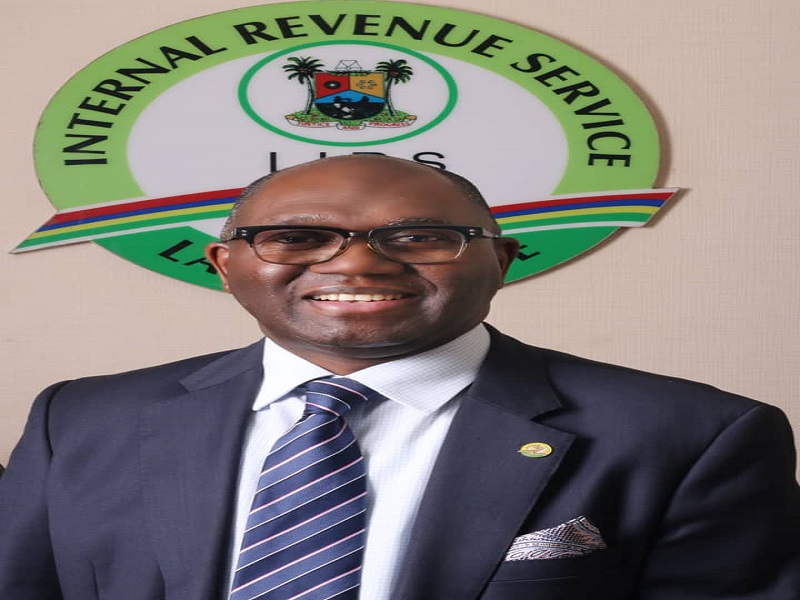News
Nigeria Waits for Complete Election Results

By Lukman Otunuga, FXTM Research Analyst
Whatever the outcome of Nigeria’s presidential election, it will certainly have an impact on investor sentiment.
Foreign investors need to see Nigeria stepping up its efforts to diversifying away from oil dependence, while also boosting infrastructure spending across major sectors. If the correct strategy is implemented towards improving local macroeconomic conditions and shielding against external forces, Nigeria could move a step close to nearing its true potential. Although the elections will affect investor confidence in the near term, it’s the critical steps taking after that will shape sentiment towards the largest economy in Africa.
Pound clings onto Brexit delay hopes
Pound bulls were injected with a renewed sense of confidence this morning following reports that UK Prime Minister Theresa May could delay Brexit beyond 29 March.
This development will certainly remove some element of uncertainty over Brexit whilst soothing fears over the UK crashing out of the EU without a deal in place next month. However, a major risk accompanied by extending Article 50 is that Britain will find itself trapped in a Brexit limbo. While the Pound has scope to extend gains on Brexit delay expectations, the medium to longer term outlook remains blurred by a thick cloud of uncertainty. With the odds of a second referendum also rising after Labour leader Jeremy Corbyn made a U-turn to back the move, another question floating in the air is whether there will even be a Brexit.
With just over one month left until the UK is scheduled to leave the European Union, we expect the Pound to display extreme levels of sensitivity and volatility to Brexit headlines. Although some attention will be directed towards the inflation report hearings later today, this will likely be overshadowed by a crucial cabinet meeting where the Brexit deadline will be discussed.
Focusing on the technical picture, the GBPUSD is pushing higher on the daily charts with prices trading around 1.3130 as of writing. The combination of Brexit delay expectations and Dollar weakness has the potential to push the GBPUSD towards 1.3200 in the near term.
Dollar waits for Jerome Powell
The Dollar has lost its mojo in recent days, slipping closer to the 96 psychological level due to a number of domestic and external factors.
A string of soft economic data from the United States, coupled with growing speculation over the Fed taking a break on monetary tightening this year, has brought nothing but bad news for the Dollar. The risk-on flows have also pulled investors away from safe-haven assets and currencies, which will inevitably pressure the Dollar further. Although Dollar bulls were initially supported by the economic divergence between the US and everyone else, this theme could be coming to an end.
Much attention will be directed towards Fed Chair Jerome Powell’s congressional testimony later in the day. Powell’s testimony could offer investors some additional insight into the Federal Reserve’s monetary policy stance for 2019. The central bank head is expected to reiterate that the Federal Reserve will remain “patient” on future hikes. We see the Dollar weakening against a basket of major currencies if Powell adopts a dovish tone during his testimony.
Commodity spotlight – Gold
Gold weakened towards $1,326 this morning, as US-China trade optimism sent investors sprinting to riskier assets.
Although the precious metal is at risk of depreciating further in the short term amid the risk-on sentiment, the medium to longer term outlook swings in favour of Gold bulls. For as long as geopolitical risks, concerns over plateauing global growth and speculation over the Fed taking a pause on rate hikes remain key themes, Gold is insulated from extreme downside shocks.
In regards to the technical picture, sustained weakness below $1,330 is likely to encourage a decline towards $1,318. However, bulls still remain in control above the $1,303 higher low.
News
Firms Commit to Boost African Robotics Market

AfricAI and Micropolis Robotics have signed a multi-year exclusive distribution and deployment agreement, which marks one of the continent’s most significant robotics market entries.

Micropolis AI Robotics is a United Arab Emirates-based robotics manufacturer operating in autonomous systems, while AfricAI is a company building practical, revenue-driven artificial intelligence (AI) systems for African businesses, governments, and global partners operating in emerging markets.
According to the agreement, Micropolis Robotics named AfricAI as its exclusive continental partner, prohibiting direct sales, alternative distributors, and third-party agents from operating in the territory.
The partnership establishes AfricAI as the primary execution, localisation, and go-to-market platform for intelligent robotics in Africa’s industrial, security, logistics, and infrastructure sectors.
AfricAI said this exclusive mandate positions the company as the gateway for advanced autonomous systems entering African markets, ensuring regulatory compliance, local capacity building, and sovereign control over deployment frameworks.
The partnership, according to the two parties, moves beyond software- based AI into the realm of physical AI — intelligent machines capable of operating in complex, real-world African environments.
“This is not a collaboration, it is a market-shaping mandate,” said Fareed Aljawhari, CEO of Micropolis Robotics. “AfricAI now represents the exclusive gateway through which Micropolis technologies enter Africa. Their sovereign AI vision, operational reach, and regulatory fluency make them the only partner capable of executing at a continental scale.
Furthermore, the agreement enables AfricAI to integrate Micropolis’ autonomous robotics systems with AfricAI’s sovereign AI stack, resulting in AI-powered security and surveillance platforms, robotics-enabled logistics and port operations, industrial automation, smart infrastructure, and municipal robotics tailored to African operating conditions.
Initial deployments will commence in security, smart infrastructure, and logistics, with phased expansion across multiple African states as part of AfricAI’s broader continental AI, data, and intelligent infrastructure strategy.
The agreement also includes long-term performance-linked expansion rights, automatic renewals, and a defined localisation framework to support robotics deployment, workforce training, and skills transfer across Africa.
Prince Malik Ado-Ibrahim, executive chairman of AfricAI, said: “Africa does not need imported automation — it needs sovereign, context-aware intelligent systems. This exclusive mandate allows AfricAI to industrialise robotics deployment at scale while retaining control, compliance, and value creation on the continent.”
News
Subair: LIRS Won’t Raid Accounts – Unless You’ve Lost Every Court Battle

Lagos State Internal Revenue Service Executive Chairman Ayodele Subair Tuesday demolished online panic over alleged bank account raids, insisting the agency’s “Power of Substitution” targets only hardcore tax dodgers who have exhausted every appeal from tribunals to the Supreme Court over half a decade of disputes.

Ayodele Subair
Subair, speaking on Arise TV, shredded viral fears that LIRS would swoop on residents’ savings without warning, clarifying the mechanism under Section 60 of the Nigeria Tax Administration Act 2025 kicks in solely after assessments spark objections, reconciliations, demand notices, and a gruelling courtroom odyssey through High Court, Court of Appeal, and apex rulings.
The LIRS weekend notice had ignited fury by announcing enforcement via third parties – banks, employers, tenants, debtors – to claw back unpaid Personal Income Tax, Capital Gains Tax, Stamp Duties, and Withholding Tax from chronic defaulters holding funds or owing money to them, whether due now or accruing later.
Subair likened the process to a “long timeframe, not less than five years,” where recalcitrant bigwigs who stonewall every step become fair game, with LIRS directing agents like customers or partners to divert payments straight to the taxman in lawful settlement.
Far from arbitrary grabs, the chairman stressed it’s a final resort for “entirely recalcitrant” holdouts who ignore Notice of Refusal to Amend (NORA) and every olive branch, ensuring Lagos coffers snag rightful revenue fuelling the state’s bulging budget without shotgun raids on compliant payers.
As social media buzzes with defiance – “They can’t touch my account!” – Subair’s blueprint spotlights Nigeria’s tax evasion scourge starving subnationals of trillions yearly, with Lagos alone chasing billions in arrears amid federal revenue wars and economic headwinds squeezing the commercial capital’s 25 million souls.
Industry voices nod to the legality but plead for digital dashboards tracking disputes transparently, warning overzealous recovery could spook investors in Africa’s fintech and startup mecca already reeling from naira nosedives and grid glitches.
With LIRS poised to unleash the hammer on vetted violators, Subair’s clarion call aims to separate myth from muscle, bolstering Lagos’ IGR juggernaut that hit N815 billion last year while daring defaulters to test the full judicial gauntlet before crying foul.
News
NIGCOMSAT Adopts Government’s Performance System

Nigerian Communications Satellite (NIGCOMSAT) Ltd, in a strategic move to modernise its operations and foster a results-oriented workforce, has officially adopted the Federal Government’s Performance Management System (PMS).

The initiative, aimed at driving efficiency and institutionalising accountability, was marked by an intensive staff training program designed to align the agency’s operations with national performance goals and the Presidency’s vision for a digital-first public sector.
According to a statement from Stephen Kwande, the Agency’s acting head of Corporate Affairs, “the transition to PMS is a departure from historical evaluation methods. The new system is designed to provide real-time performance tracking and instill a stronger work ethic across all directorates”.
Welcoming participants, Mrs. Jane Nkechi Egerton-Idehen, managing director/CEO of NIGCOMSAT, represented by Abiodun Attah, executive diirector, Technical Services, described the adoption as “long overdue.”
She emphasised that the system is critical for ensuring that NIGCOMSAT contributes effectively to Nigeria’s broader digital economy targets.
In her opening remarks, Mrs. Chinwe Udogu, general manager, Human Resources Management, expressed NIGCOMSAT’s enthusiasm for the program, urging staff to dedicate themselves fully to the three-day training.
She noted that the exercise was pivotal in repositioning the company to achieve its highest aspirations.
The training consultant, Mrs. Njoku Chioma, said the program is expected to drive culture change, automate work processes, and strengthen institutional performance.
The three-day training, jointly organised by the Office of the Head of Service of the Federation and NIGCOMSAT Management, covers key themes including:
• Overview of the FCSSI25 as an institutional performance-driven Federal Civil/Public Service
• Service culture and workplace attitude in the Nigerian public sector
• Implementation of the Performance Management System in NIGCOMSAT
• Application of Artificial Intelligence tools to enhance performance in the Nigerian public sector
The move comes at a time when NIGCOMSAT is expanding its footprint, with recent initiatives like the 2026 SpaceTech Accelerator Programme and partnerships for grassroots digital skills training.
By strengthening its internal management framework, the agency aims to ensure that its technical advancements in satellite technology are matched by an equally efficient administrative engine.

 E-Financial2 days ago
E-Financial2 days agoPayPal Goes Live in Nigeria through Paga

 Telecom1 day ago
Telecom1 day agoPolice Bust ₦7.7bn Telecom Hack Gang, Seize 400 Laptops in Massive Fraud Swoop

 Broadcasting2 days ago
Broadcasting2 days agoNITDA, NBC Explore Strategic Collaboration on Digital Transformation, Media Regulation

 General News1 day ago
General News1 day agoNaira Smashes Through ₦1,400 Barrier in Official FX Rally

 General News1 day ago
General News1 day agoNCC Slaps ₦250,000 Fee on Trial Licences to Spur Telecom Innovation

 General News2 days ago
General News2 days agoFacebook Powers Connection, Creativity at African Creators Summit 2026

 E-Business2 days ago
E-Business2 days agoGold Hits Record $5,110/Ounce Amid Trump Tariff Threats, Geopolitical Fears

 Telecom2 days ago
Telecom2 days agoTikTok, Instagram Blamed in US Youth Suicide Lawsuit



























